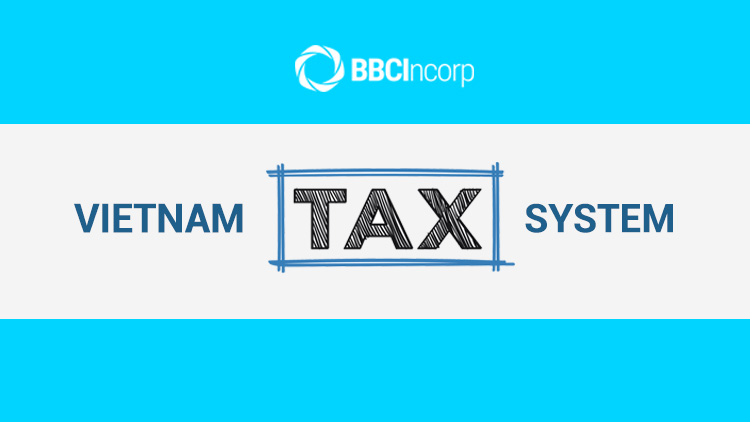
If you want to do business in Vietnam, the first thing to look up might be the Vietnam tax system. Most business activities in Vietnam will be heavily affected by the taxes in this article, such as Corporate Income Tax, Foreign Contractor Withholding Tax, etc. BBCIncorp proudly brought to you a brief look into the Vietnam income tax.
1. Corporate income tax
In Vietnam, Corporate Income Tax (CIT) is based on the net income that companies obtain while operating their businesses, normally in one business year cycle.
Tax rate
The standard CIT rate applied to enterprises in Vietnam is 20% based on assessable income. However, tax rates for oil, gas, and other extractive industries might vary from 32 – 50%.
CIT calculation formula
CIT = CIT rate x Assessable Income
In which:
- CIT: Corporate Income Tax
- Assessable Income = Total Revenue – Deductible Expenses + Other Income – Carried Forward Losses
Tax Incentives for SMEs
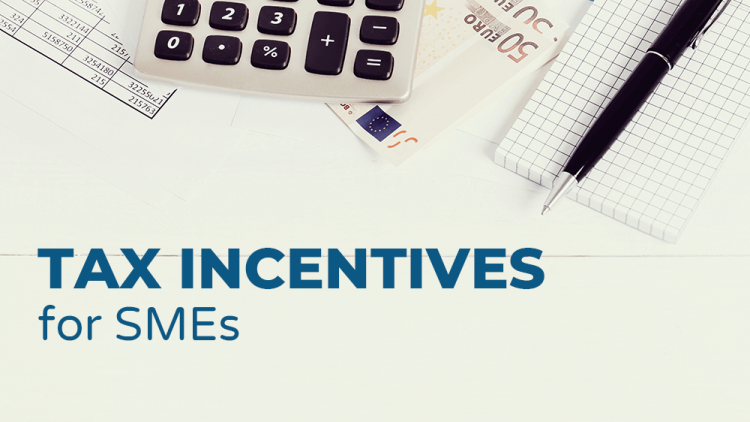
Vietnam’s tax incentives come in varied forms and are granted to freshly invested projects.
As with SMEs and investors who are planning to invest in Vietnam, the following encouraged sectors can help you earn some tax incentives: high-tech enterprises, software development, education, health, environmental protection, scientific research, agricultural and aquatic product processing, renewable energy, and infrastructure development.
To gain full insights, read this Guide to Corporate Tax in Vietnam!
2. Foreign Contractor Withholding Tax (FCWT)
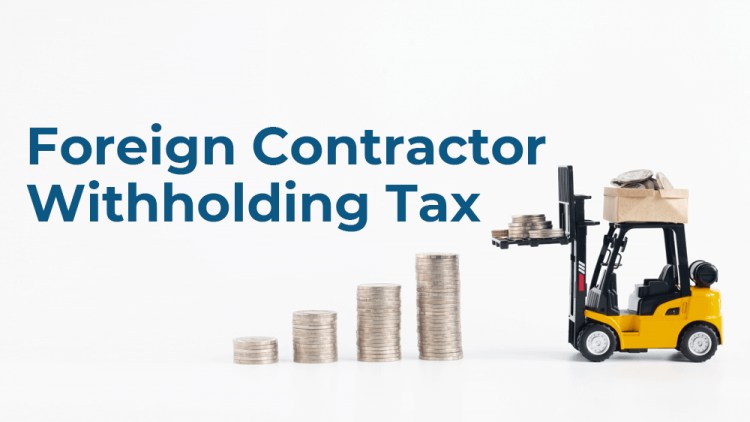
FCWT applies to foreign organizations or individuals who operate a business or earn income in Vietnam based on a contract or an agreement with a Vietnamese party (as a main foreign contractor) or another foreign contractor to implement a part of the contractual scope of works (a foreign subcontractor). FCWT comprises both CIT and VAT, but in some cases, may also include PIT.
For a better understanding of this type of tax, here is a blog that can help: Vietnam Foreign Contractor Tax.
Scope of Application
| Subject to FCWT | |
|---|---|
| Services |
|
| Goods |
|
| Others |
|
FCWT Declaration Methods
There are three methods for the FCWT declaration including the Deemed method, Hybrid method, and Declaration method.
| Deemed or direct method |
|
| Declaration method |
|
| Hybrid method |
|
Important notice: The Hybrid method and Declaration method require foreign contractors to satisfy the following conditions:
- Maintaining a contract duration of 183 days or more
- Having a Permanent Establishment (PE) in Vietnam, (e.g a Project Office) and
- Applying the Vietnamese Accounting System
Double Taxation Agreements (DTAs) Effect on FCWT
DTAs can have a remarkable impact on the FCWT. Foreign contractors might be able to avoid income tax if it is from a country that has a DTA with Vietnam as well as it does not have a PE in Vietnam. Roughly speaking, DTAs help to eliminate double taxation by providing two means: tax exemption or reduction, and foreign tax credit. Until now, Vietnam has been a member of nearly 80 DTAs with many trading parties.
3. Capital Assignment Profits Tax (CAPT)
CAPT is not specifically a separate tax, however, it derives from the sale of shares in a Vietnam company in many cases subject to 20% CIT. The gain is characterized as the excess of the sales proceeds after deducting related cost and transfer expenses.
Foreign entities who engage in the transfer of securities i.e. bonds, shares in a listed joint-stock company, etc. will be subject to a tax of 0.1% on total sales proceeds.
4. Value-added tax (VAT)
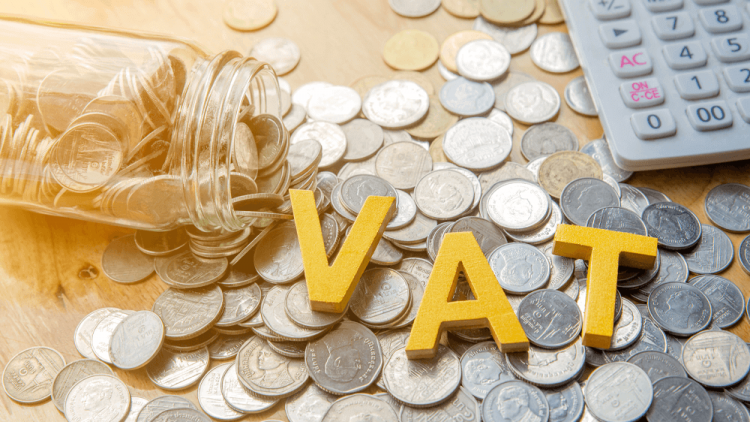
The VAT applies to domestic or imported goods and services that are bought and sold for production, trading, consumption, or use. For detailed information, read the Vietnam VAT blog now!
VAT Rate
| VAT Rate | Items |
|---|---|
| 0% |
|
| 5% |
|
| 10% |
|
| Exempt |
|
0% VAT vs Exempt goods and services
With zero-rated goods and services, Vietnam tax authority doesn’t tax its sale but allows credit for the VAT paid on inputs. As with the exempt goods and services, the government also doesn’t tax the sale of the goods and services, however, producers cannot claim a credit for the value-added tax they pay on inputs.
VAT Calculation Methods
There are two calculation methods:
- Deduction method: applicable to business establishments maintaining accounts, invoices, and documents in accordance.
- Direct method: applies to business establishments with annual revenue subject to VAT of less than VND1 billion; individuals or business households; businesses engaging in gold, silver, and precious stones trading.
5. Special Sale Tax (SST)
SST applies to the manufacturing or import of certain goods and the provision of certain services.
Tax credits
Whereas a good is subject to SST and is manufactured with raw materials that were also subject to SST, the manufacturer can claim a credit for the SST on those raw materials. The same goes for importation where the taxpayer has to pay for SST on both selling price and importation.
Tax rate and Applicable goods and services
| Goods and Services | Tax rate (%) |
|---|---|
| Cigar and Cigarettes | 75 |
| Spirit and Wine | 35-65 |
| Beer | 65 |
| Automobiles less than 24 seats | 10-150 |
| Motorcycle (above 125cm3) | 20 |
| Airplanes | 30 |
| Boats | 30 |
| Petrol | 7-10 |
| Air-con (no more than 90,000 BTU) | 10 |
| Playing cards | 40 |
| Votive papers | 70 |
| Discotheques | 40 |
| Massage, Karaoke | 30 |
| Casinos, jackpot games | 35 |
| Entertainment involved betting | 30 |
| Golf | 20 |
| Lotteries | 15 |
6. Property taxes
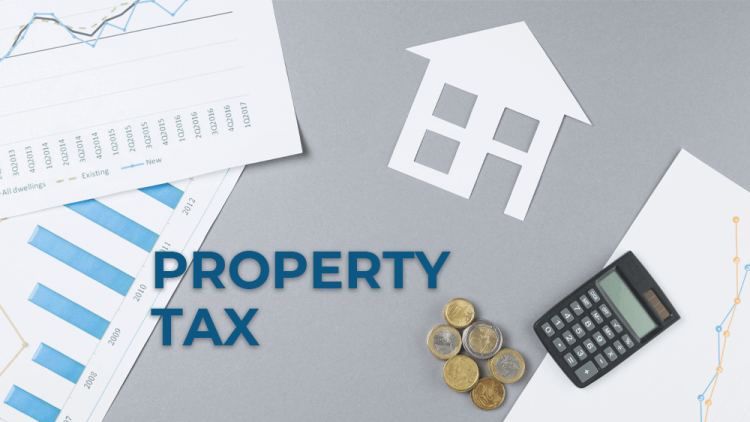
Foreign investors typically pay a rental fee for land use rights. The rates vary depending on the location, infrastructure as well as industrial sector.
Furthermore, houses and apartments are listed as non-agriculture land. Therefore, owners have to pay land tax under the law on this typical land use. The tax is charged on the specific area based mainly on the price per square meter and can be ranged from 0.03% to 0.15%.
7. Natural resources tax (NRT)
Businesses exploiting Vietnam’s natural resources regarding petroleum, minerals, natural gas, forestry products, and natural water will be charged for NRT. The tax rates vary from 1% to 40% based on the natural resource being exploited.
8. Environment protection tax (EPT)
EPT applies to the manufacture and importation of certain products that are considered detrimental to the Vietnam environment, mostly petroleum and coal.
9. Import and export duties

Import duties
Import duties rates are divided into 3 categories:
- Ordinary rates: for goods not taxed at preferential or special preferential rates.
- Preferential rates: for goods originating from countries having most-favored-nation status (MFN) with Vietnam.
- Special preferential rates: for goods from countries that have signed free trade agreement (FTA) with Vietnam.
Longing for an in-depth explanation about Import Duties in Vietnam, read Vietnam Import Regulations now!
Exemption
Exemptions are available on conditions that the projects are categorized as in encouraged sectors or locations and other goods imported in specific circumstances.
Export duties
Export duties are applied to natural resources including but not limited to sand, chalk, ore, crude oil, scrap metal, etc. The export duty rate ranges from 0% – 40%.
10. Vietnam Personal Income Taxes (PIT)
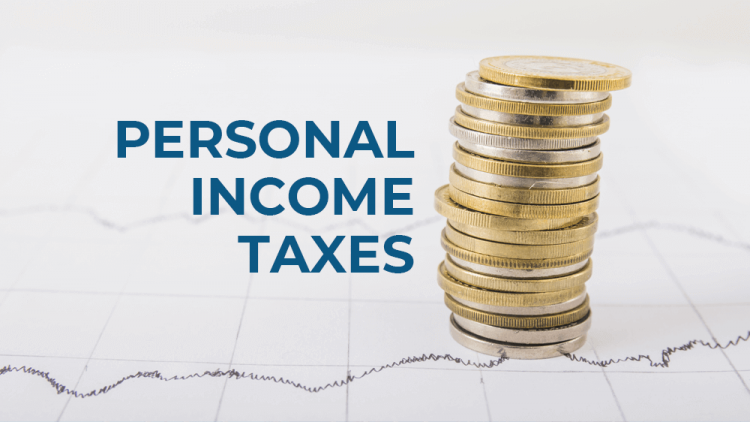
Tax Residency
Generally, an individual is deemed as a local tax resident if he/she resided in Vietnam for no less than 183 days in 12 consecutive months, or has a permanent establishment here.
Tax residents are subject to PIT on their worldwide income, whereas non-tax residents are only charged on their Vietnamese sourced income.
Tax Year
The tax year in Vietnam is also the calendar year. Still, when an individual arrives in Vietnam for less than 183 days, his or her tax year will be the 12-month-period from the date of arrival.
Tax rates on employment and unemployment income
For tax residents, PIT applies on a progressive sliding scale from 5% – 35%, which rates increase following a rising level of employment income. Business income is taxed at varied rates depending on types of income.
Non-tax residents are charged at a flat rate of 20% on employment income, and different rates on business income types.
Taxable employment income items include all kinds of remuneration and benefits, but except: payments for business trips, telephone charges, and stationary costs, office clothes, overtime premiums, etc.
Taxable non-employment income includes: business income, investment income, gain on sale of shares, gain on sale of real estate, etc.
Important Notice: Tax refund Vietnam is only available to those who have a tax code.
Non-taxable Income
Non-taxable income including but not limited to:
- Interest income comes from credit institutions or banks, compensation from life, or non-life insurance policies
- Retirement pensions from Social Insurance Law (or equivalent)
- Income from direct family members as properties, inheritances, gifts
- Etc
To have full insights about this type of tax, this Guide to Personal Income Tax in Vietnam might come in handy!
11. Other Issues
Transfer Pricing (TP)
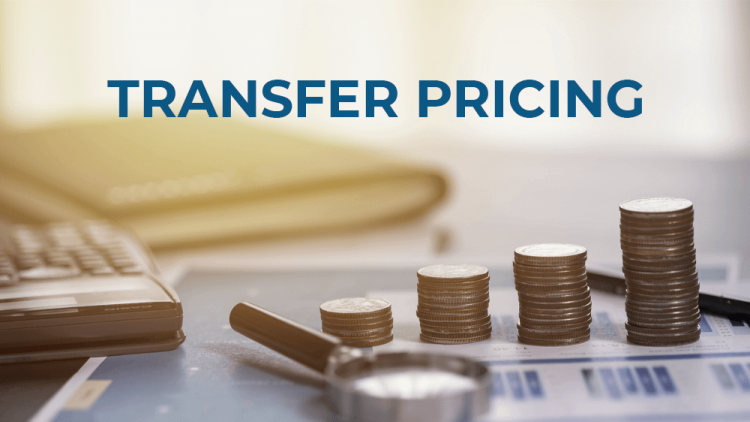
Though being a part of the Vietnam tax system, Vietnam’s Transfer Pricing is based mostly on the Transfer Pricing Guidelines of the Organization for Economic Cooperation and Development (OECD) and Base Erosion and Profit Shifting (BEPS) Action Plan. The rules are also applied to domestic-related transactions.
TP Methodologies
Entities that are considered as a related party (with 25% common ownership) are required to sustain documentation to support their chosen methodology for arm’s length pricing.
OECD-guideline-consistent methodologies include:
- Comparable uncontrolled price
- Cost-plus
- Profit split
- Comparable profits
- Resale price
TP Documentation
TP includes a three-tiered approach:
- Master file
- Local File
- Country-by-Country report
TP Exemption
Entities are exempt from disclosure of transfer pricing information if meeting all of the following criteria:
- Engage in transactions between Vietnamese parties;
- Subject to the same corporate tax rate;
- Neither parties entitled to tax incentives within a specified tax period.
Entities are required to declare transfer pricing information, but not to provide documentation in the following cases:
- Gross revenue less than VND 50 billion (approx. $2 million), and all related-party transactions not exceeding VND 30 billion (approx. $1.2 million); or
- Entering into Advance Pricing Agreement (APA), and submitting an annual report for APA purpose; or
- No revenue/expenses arising from intangible assets, gross revenue of less than VND 200 million (approx. $8mil), and operating profits before interests and tax exceeding prescribed rates for specific sectors.
Double Taxation Agreement (DTAs)
Vietnam has signed more than 80 DTAs with countries and territories, accompanied by other additional protocols and rulings. The main point of DTAs is to share the taxation between the countries.
Above is a general guide about the Vietnam tax system. All of the information is based on current taxation regulations and practice in Vietnam. However, to understand throughout Vietnam taxes, advice from professionals is advisable.
Disclaimer
While BBCIncorp strives to make the information on this website as timely and accurate as possible, the information itself is for reference purposes only. BBCIncorp would like to inform readers that we make no representation or warranty, express or implied. Feel free to contact BCCIncorp’s customer services for advice on specific cases.
- 1. Corporate income tax
- 2. Foreign Contractor Withholding Tax (FCWT)
- 3. Capital Assignment Profits Tax (CAPT)
- 4. Value-added tax (VAT)
- 5. Special Sale Tax (SST)
- 6. Property taxes
- 7. Natural resources tax (NRT)
- 8. Environment protection tax (EPT)
- 9. Import and export duties
- 10. Vietnam Personal Income Taxes (PIT)
- 11. Other Issues
Get helpful tips and info from our newsletter!
Stay in the know and be empowered with our strategic how-tos, resources, and guidelines.

